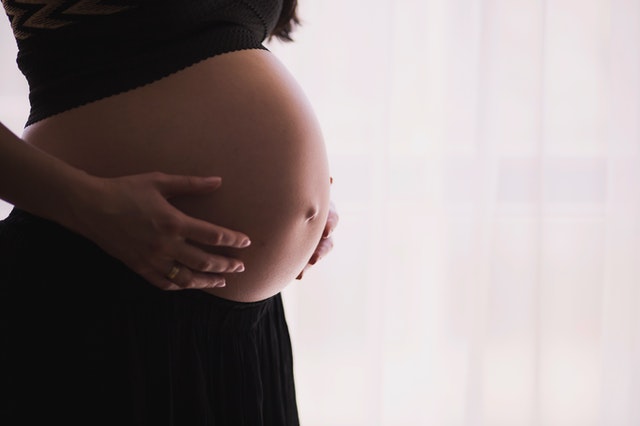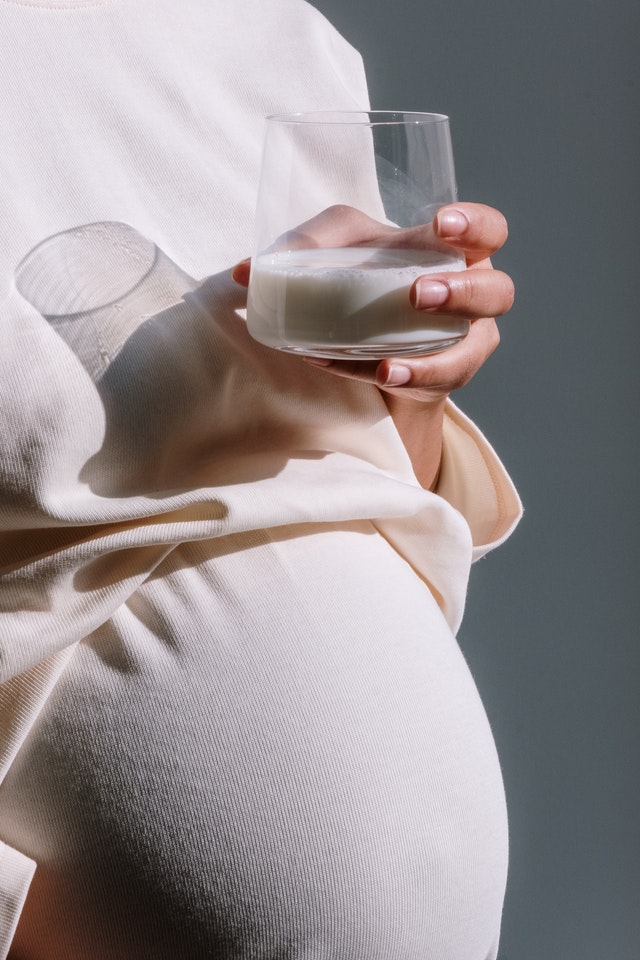Pregnant US woman passes maternal antibodies and vaccine immunity to baby

While there's been some apprehension among pregnant women over taking the Covid-19 vaccine during their gestation period, some women have let science take the lead and got their jabs already.
It also helps that CDC has also encouraged expecting mums to go ahead and get vaccinated.
Based on a new analysis, the CDC recently suggested that the safety and effectiveness of Covid-19 vaccination during pregnancy is growing.
The data added that the benefits of the vaccine outweigh any potential risks during pregnancy.
The CDC also found no safety concerns for expecting mums in either the new analysis or previous studies.
If that wasn't reason enough to get the jab, perhaps this mum's story will.
A baby boy born recently received the Covid-19 vaccine antibodies from his mum who took the vaccine during her first trimester.
Proving that maternal antibodies cross placenta to foetus, thus protecting them from deadly viruses.
A post shared by Effingham Obstetrics & Gynecology Associates, LLC, on Facebook shared, "This little guy's momma was proactive and received the COVID vaccine when it became available to her. She received it early in her pregnancy during her 1st trimester.
"The vaccine does not cross the placenta, but as you can see here from his test the antibodies sure do!!! His momma shared her vaccine immunity with him."
[embed]https://www.facebook.com/EffinghamOBGYN/posts/2953324388257180[/embed]
This is great news considering the vaccination was taken way back in the first trimester and its effects still showed up on the baby as well.
While vaccinations have been ongoing since earlier this year, there wasn't sufficient data to ensure that it was safe for pregnant women.
However, as more and more women are taking the jab and sharing their medical history, we now have concrete evidence to support that the Covid-19 vaccine is safe for expecting mums.

An Israeli study released in July 2021 by JAMA for instance, also backs this up.
The study concluded that two doses of Pfizer's vaccine were 78 per cent effective in preventing infection in pregnant women in Israel.
The researchers at Maccabi Healthcare Services in Tel Aviv analysed over 15,000 expecting women that included 7530 vaccinated women and 7530 unvaccinated women.
The study had women matched by age, gestational age, residential area and the number of times they had given birth.
A study titled The transfer of immunity from mother to child explains: "The newborn's immune system grows fast from a small size at birth by exposure primarily to the intestinal microflora normally obtained from the mother at and after birth."

The researchers further add, "While building up its immune system, the infant is supported by the transplacental IgG antibodies, which also contain anti-idiotypic antibodies, possibly also actively priming the offspring. The second mode of transfer of immunity occurs via the milk."
So while maternal antibodies cross placenta to foetus during pregnancy, they are activated even further after the baby receives breast milk.
And as you know, there are multiple benefits of breastfeeding that not only help the mum but the baby as well.
A mother's breast milk covers all the necessary nutritional value for the child.
During the first few days after birth, your breasts will produce a thick and yellowish fluid called colostrum, which contains high levels of protein and helps build the child's immunity.
Not just the Covid-19 antibodies but breast milk also contains antibodies that help babies fight viruses and bacteria.
Given that their immune system is still weak and building, it's these antibodies that keep them safe in their days after birth.
A baby that drinks plenty of breast milk multiple times a day will gain weight without having to worry about obesity.
Unlike formula milk that tends to increase the baby's weight, breast milk promotes a healthy weight gain.
Do remember that breast milk is about 80 per cent water and 20 per cent nutrients, and there are absolutely no side effects to it.
Breastfeeding your baby will also prevent them from the risk of childhood leukaemia.
The American Academy of Pediatrics (AAP) recommends exclusive breastfeeding for the first six months before easing the child on to solid foods.
Even the World Health Organisation (WHO) and Unicef recommend breastfeeding within the first hour of birth and should continue to exclusively breastfeed the child for the first six months.
[[nid:510692]]
An infant's stomach does not develop fully during the early months after birth, so feeding solid food during this period can cause indigestion.
Mums can continue to breastfeed that child even the one year mark along with moving them to solid food options.
Breastfeeding also helps new mums to contract their uterus and also lower the risk of postpartum depression.
A 2012 study concluded that women who breastfeed are less likely to develop postpartum depression, compared to those who didn't.
All in all, this new case further proves that antibodies are passed on from an expecting mother to a baby, thus protecting him from infectious diseases.
And to further cement the immunity, breast milk comes to the rescue.
This article was first published in theAsianparent.